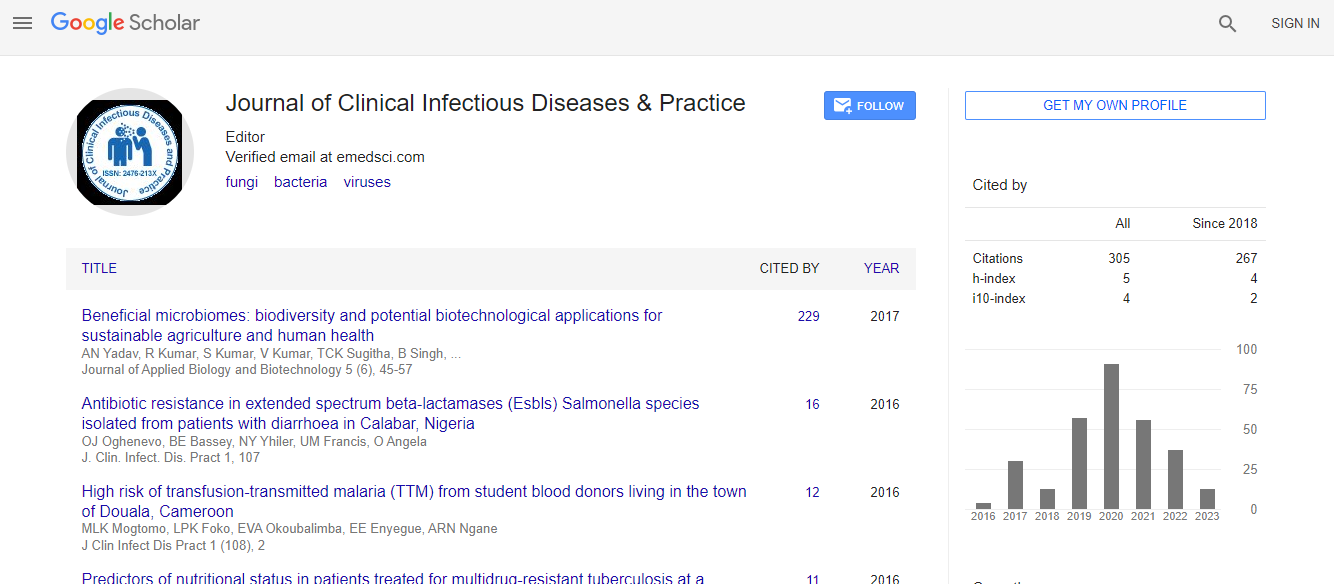Our Group organises 3000+ Global Conferenceseries Events every year across USA, Europe & Asia with support from 1000 more scientific Societies and Publishes 700+ Open Access Journals which contains over 50000 eminent personalities, reputed scientists as editorial board members.
Open Access Journals gaining more Readers and Citations
700 Journals and 15,000,000 Readers Each Journal is getting 25,000+ Readers
Google Scholar citation report
Citations : 531
Journal of Clinical Infectious Diseases & Practice peer review process verified at publons
Indexed In
- Google Scholar
- RefSeek
- Hamdard University
- EBSCO A-Z
- Publons
- ICMJE
Useful Links
Share This Page
Abhisheka Bansal

Abhisheka Bansal
NIAID,
National Inistitute of Health
USA
Biography
Abhisheka Bansal is a post-doctoral fellow at National Institute of Allergy and Infectious Diseases, NIH, USA. Dr. Bansal completed his graduation in Biotechnology in 2004 from Amity Institute of Biotechnology, India. He received his master’s degree in Biotechnology from All India Institute of Medical Sciences, India where he worked on “Detection of Mycobacterium bovis and Mycobacterium tuberculosis in skin biopsies”. Dr. Bansal completed his PhD from International Center for Genetic Engineering and Biotechnology, India on understanding the “Role of calcium signaling in the invasion of red blood cells by Plasmodium falciparum”. He published these findings in Journal of Biological Chemistry and joined Dr. Louis H. Miller at NIAID, NIH, USA for further research on malaria. Here he contributed in understanding the molecular basis of allelic exclusion of virulence genes in P. falciparum. Currently, Dr. Bansal has been working on understanding the role of kinases in invasion of red blood cells by P. falciparum.
Research Interest
Dr. Bansal is interested in understanding the signaling pathways that regulate the invasion of red blood cells by malaria parasite, Plasmodium falciparum. His primary focus is to understand the role of calcium dependent protein kinases (CDPKs) in this critical process of asexual proliferation of the parasite. Dr. Bansal is also interested in understanding the signaling cascades involving CDPKs in exflagellation of male gametocytes to form microgametes.
Certificate
Global Speakers in the subject
Global Experts in the subject
Publications
Chemical Genetics to Study Plasmodium Kinases
| Abhisheka Bansal and Louis H. Miller |
| Short Communication: J Clin Infect Dis Pract 2016, 1:102 |

 Spanish
Spanish  Chinese
Chinese  Russian
Russian  German
German  French
French  Japanese
Japanese  Portuguese
Portuguese  Hindi
Hindi 

